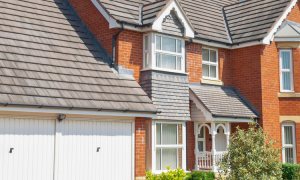Investing in real estate can be a great way to create wealth for you and your family, but to succeed it’s important to adopt a different mindset than when you bought your family home.
As a property investor you will be looking at homes for their profit potential rather than their aesthetics alone.
How Do I Make Money?
A common saying among real estate professionals is that you should “profit when you buy”. This is because you can control what you pay for a property, but you can’t control what the market will do to that property’s value.
As an example, let’s say you bought a property for $150,000 in need of about $25,000 in repairs that you intend to resell. It’s located in an area where comparable properties sold between $140,000 and $170,000 dollars.
Would this be a good deal? No, you paid more than you could get for it if you were to sell. Over a good deal of time you may earn a profit, but it’s smarter to make your money going into the deal than count on time and/or luck to increase your property’s value.
What Is Positive Cash Flow?
A positive cash flow property is a property that earns more income than it costs you to own it.So for example, if you had an investment property that brought in a monthly rental income of $1,000 per month and it cost you $800 per month to own it, then it would be considered a positive cash flow property. And as you can guess, a negative cash flow property is one that costs you to own.
What Is Capital Growth?
Capital growth means an increase in the value of your property. So for example, if you purchased a property at $100,000 and in a year’s time, it grew in value to $102,000 then the property market has delivered 2% growth.
While you need positive cash flow to fund your property purchases and maintenance, you need capital growth to grow your assets and achieve true wealth.
What Is an Investing Strategy?
To reach any goal in life, you’ve got to have a plan. Your investing strategy will be the plan you use to reach the goals you have set for yourself. So for example, if you need to buy an investment property that will pay for itself (positive cash flow) you’ll be looking for:
- A property that you can buy for less than the market might pay (known as below value or a discount).
- A property that is in a location with higher priced properties that you can do simple renovations to in order to increase its value and charge more in rent (ask your agent if the market will take an increase in rent).
Where Do I Find a Good Investment Opportunity?
There are certain market drivers that we look for when finding a potential investment. These drivers will impact both what you pay for a property and the rate at which it grows (or doesn’t grow) in value.
Population growth. Put simply, an area that is growing. You want to look for areas which have been predicted to grow.
Supply and demand. Look for an area with a lot of listing inventory. You want to find an area with more renters than properties available to achieve the best rental returns possible.
Economics. There should be employers expanding and/or hiring, retail stores moving into the area, roads being built and/or expanded and other signs of strong economic growth.
Work with an agent with deep local knowledge who can advise you on locations that have these drivers.
How Do I Determine If an Investment Is Profitable?
Use the following calculations to find possible investment properties.
- Determine how much gross income the property will deliver.
- Figure out your monthly expenses such as insurance, property taxes, property management fees, financing costs, HOA (if applicable), repairs, and vacancy costs.
- Subtract your monthly expenses from the monthly rent. This amount is your net income (your cash flow).
- Calculate the cap rate and the cash on cash return. Cap rate compares the return on investment(ROI) to the purchase price. To get the cap rate, divide the net annual income by the purchase price. Aim for a rate of 8% or higher to get the best results.
- Determine the cash on cash return. This calculation tells you how much return your investment is giving you. If you were to pay all cash, then this figure would be the same as the cap rate. If you’re financing, this calculation is a more accurate way to determine how profitable your investment is. To calculate, divide the net annual income by the total cash invested. The difference between these last two calculations is that the cap rate tells you how good of a deal you’re getting on the purchase price, whereas the cash on cash return tells you how good of a return your money is getting.
Investing in a property can be exciting, but it can also be a stressful one if you don’t do your homework. Be sure to work with a trustworthy agent to determine if you should invest in a rental property in a particular location.
Get more information on the home buying process.






